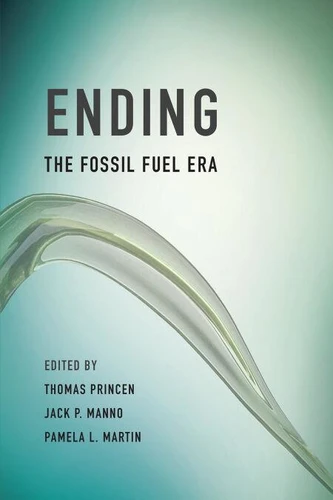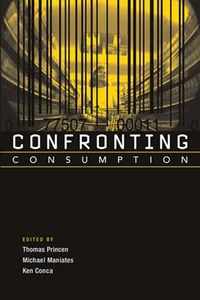Ending the Fossil Fuel Era
Par : , ,Formats :
Disponible dans votre compte client Decitre ou Furet du Nord dès validation de votre commande. Le format ePub protégé est :
- Compatible avec une lecture sur My Vivlio (smartphone, tablette, ordinateur)
- Compatible avec une lecture sur liseuses Vivlio
- Pour les liseuses autres que Vivlio, vous devez utiliser le logiciel Adobe Digital Edition. Non compatible avec la lecture sur les liseuses Kindle, Remarkable et Sony
- Non compatible avec un achat hors France métropolitaine
 , qui est-ce ?
, qui est-ce ?Notre partenaire de plateforme de lecture numérique où vous retrouverez l'ensemble de vos ebooks gratuitement
Pour en savoir plus sur nos ebooks, consultez notre aide en ligne ici
- Nombre de pages392
- FormatePub
- ISBN978-0-262-32708-4
- EAN9780262327084
- Date de parution22/05/2015
- Protection num.Adobe DRM
- Taille3 Mo
- Infos supplémentairesepub
- ÉditeurThe MIT Press
Résumé
A provocative call for delegitimizing fossil fuels rather than accommodating them, accompanied by case studies from Ecuador to Appalachia and from Germany to Norway. Not so long ago, people North and South had little reason to believe that wealth from oil, gas, and coal brought anything but great prosperity. But the presumption of net benefits from fossil fuels is eroding as widening circles of people rich and poor experience the downside.
A positive transition to a post-fossil fuel era cannot wait for global agreement, a swap-in of renewables, a miracle technology, a carbon market, or lifestyle change. This book shows that it is now possible to take the first step toward the post-fossil fuel era, by resisting the slow violence of extreme extraction and combustion, exiting the industry, and imagining a good life after fossil fuels. It shows how an environmental politics of transition might occur, arguing for going to the source rather than managing byproducts, for delegitimizing fossil fuels rather than accommodating them, for engaging a politics of deliberately choosing a post-fossil fuel world.
Six case studies reveal how individuals, groups, communities, and an entire country have taken first steps out of the fossil fuel era, with experiments that range from leaving oil under the Amazon to ending mountaintop removal in Appalachia.
A positive transition to a post-fossil fuel era cannot wait for global agreement, a swap-in of renewables, a miracle technology, a carbon market, or lifestyle change. This book shows that it is now possible to take the first step toward the post-fossil fuel era, by resisting the slow violence of extreme extraction and combustion, exiting the industry, and imagining a good life after fossil fuels. It shows how an environmental politics of transition might occur, arguing for going to the source rather than managing byproducts, for delegitimizing fossil fuels rather than accommodating them, for engaging a politics of deliberately choosing a post-fossil fuel world.
Six case studies reveal how individuals, groups, communities, and an entire country have taken first steps out of the fossil fuel era, with experiments that range from leaving oil under the Amazon to ending mountaintop removal in Appalachia.
A provocative call for delegitimizing fossil fuels rather than accommodating them, accompanied by case studies from Ecuador to Appalachia and from Germany to Norway. Not so long ago, people North and South had little reason to believe that wealth from oil, gas, and coal brought anything but great prosperity. But the presumption of net benefits from fossil fuels is eroding as widening circles of people rich and poor experience the downside.
A positive transition to a post-fossil fuel era cannot wait for global agreement, a swap-in of renewables, a miracle technology, a carbon market, or lifestyle change. This book shows that it is now possible to take the first step toward the post-fossil fuel era, by resisting the slow violence of extreme extraction and combustion, exiting the industry, and imagining a good life after fossil fuels. It shows how an environmental politics of transition might occur, arguing for going to the source rather than managing byproducts, for delegitimizing fossil fuels rather than accommodating them, for engaging a politics of deliberately choosing a post-fossil fuel world.
Six case studies reveal how individuals, groups, communities, and an entire country have taken first steps out of the fossil fuel era, with experiments that range from leaving oil under the Amazon to ending mountaintop removal in Appalachia.
A positive transition to a post-fossil fuel era cannot wait for global agreement, a swap-in of renewables, a miracle technology, a carbon market, or lifestyle change. This book shows that it is now possible to take the first step toward the post-fossil fuel era, by resisting the slow violence of extreme extraction and combustion, exiting the industry, and imagining a good life after fossil fuels. It shows how an environmental politics of transition might occur, arguing for going to the source rather than managing byproducts, for delegitimizing fossil fuels rather than accommodating them, for engaging a politics of deliberately choosing a post-fossil fuel world.
Six case studies reveal how individuals, groups, communities, and an entire country have taken first steps out of the fossil fuel era, with experiments that range from leaving oil under the Amazon to ending mountaintop removal in Appalachia.






